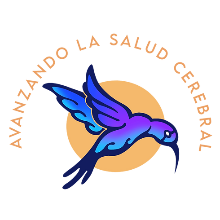About
El Taller participants will learn about the “state of the science” and the “state of the data” by hearing about existing studies in Latino cognitive aging and brain health. They will also learn the “state of the methods” necessary to address complex study designs, meet with leaders in these respective fields, and have the opportunity to apply their understanding by developing new research questions for manuscripts and novel specific aims for grant proposals.
Funded by NIH/NIA R13AG089978, this conference series was designed in line with the cells-to-society framework, and using the SOL-INCA conceptual model for addressing Latino cognitive aging and ADRD. It will encourage the use of macro-to-micro frameworks to uncover the variations in biological systems, health behaviors, and risk and protective factors that affect cognitive aging and ADRD among Latinos, and how these may differ among diverse Latino groups.
The views expressed in written conference materials or publications and by speakers and moderators do not necessarily reflect the official policies of the Department of Health and Human Services; nor does mention by tradenames, commercial practices, or organizations imply endorsement by the U.S. Government.
Future Conference Themes
2026 – ADRD and multi-omics in diverse Latino populations
2027 – Sleep and ADRD: Discovering Latino-specific mechanisms among diverse Latino heritage groups
2028 – ADRD Cognitive Assessments for studies with diverse Latino populations
2029 – Exploring sociocultural differences among Latinos in ADRD research

About the Logo
Hummingbirds are the only birds with the ability to fly upside down and backwards. The hummingbird is capable of flying long distances to reach its destination. In Aztec mythology, hummingbirds symbolize the sun god Huitzilopochtli, who was conceived after his mother caught hummingbird feathers falling from the sky. The feathers were said to be the soul of a warrior, and the Aztecs believed that Huitzilopochtli guided them on their migration to the Valley of Mexico. Hummingbirds also symbolize the spirit of a warrior reborn, and seeing a hummingbird is considered a sign of good luck. The Inca believed that the hummingbird was a messenger from heaven. The condor, which has the position of”king of the skies” conceded its status as the primary spiritual messenger of the “upper world” to the hummingbird. The hummingbird is seen as the key to the next stage of development of human consciousness. Among the Nasa, an indigenous culture of Colombia, hummingbirds represent fertility, abundance, and water. For this conference, the hummingbird reminds us to be resilient and adaptable ADRD researchers, responsive to the needs of our communities.
Statement of Appropriate Conference Conduct
El Taller aims to be a safe, equitable and accessible conference experience. Discrimination and harassment of any kind will not be tolerated. In furtherance of this, the UCSD Code of Conduct and Principles of Community apply to all attendees, speakers, volunteers and staff members, and are intended to govern behavior at the conference.
UCSD Code of Conduct
The University of California (“University”) is committed to maintaining a community dedicated to the advancement, application and transmission of knowledge and creative endeavors through academic excellence, where all people who participate in University programs and activities can work and learn together in an atmosphere free of harassment, exploitation, or intimidation.
Sexual violence, sexual harassment, retaliation, and other behavior prohibited by this Policy interfere with those goals. The University will respond promptly and effectively to reports of such conduct. This includes action to stop, prevent, correct, and when necessary, discipline, behavior that violates our policies.
In addition, the University of California, San Diego is dedicated to learning, teaching, and serving society through education, research, and public service. Our international reputation for excellence is due in large part to the cooperative and entrepreneurial nature of the UC San Diego community. UC San Diego faculty, staff, and students are encouraged to be creative and are rewarded for individual as well as collaborative achievements.
To foster the best possible working and learning environment, UC San Diego strives to maintain a climate of fairness, cooperation, and professionalism. These principles of community are vital to the success of the University and the well being of its constituents. UC San Diego faculty, staff, and students are expected to practice these basic principles as individuals and in groups.
The UCSD Principles of Community are:
We value each member of the UC San Diego community for his or her individual and unique talents, and applaud all efforts to enhance the quality of campus life. We recognize that each individual’s effort is vital to achieving the goals of the University.
We affirm each individual’s right to dignity and strive to maintain a climate of justice marked by mutual respect for each other.
We value the cultural diversity of UC San Diego because it enriches our lives and the University. We celebrate this diversity and support respect for all cultures, by both individuals and the University as a whole.
We are a university that adapts responsibly to cultural differences among the faculty, staff, students, and community.
We acknowledge that our society carries historical and divisive biases based on race, ethnicity, sex, gender identity, age, disability, sexual orientation, religion, and political beliefs. Therefore, we seek to foster understanding and tolerance among individuals and groups, and we promote awareness through education and constructive strategies for resolving conflict.
We reject acts of discrimination based on race, ethnicity, sex, gender identity, age, disability, sexual orientation, religion, and political beliefs, and, we will confront and appropriately respond to such acts.
We affirm the right to freedom of expression at UC San Diego. We promote open expression of our individuality and our diversity within the bounds of courtesy, sensitivity, confidentiality, and respect.
We are committed to the highest standards of civility and decency toward all. We are committed to promoting and supporting a community where all people can work and learn together in an atmosphere free of abusive or demeaning treatment.
We are committed to the enforcement of policies that promote the fulfillment of these principles.
We represent diverse races, creeds, cultures, and social affiliations coming together for the good of the University and those communities we serve. By working together as members of the UC San Diego community, we can enhance the excellence of our institution.
